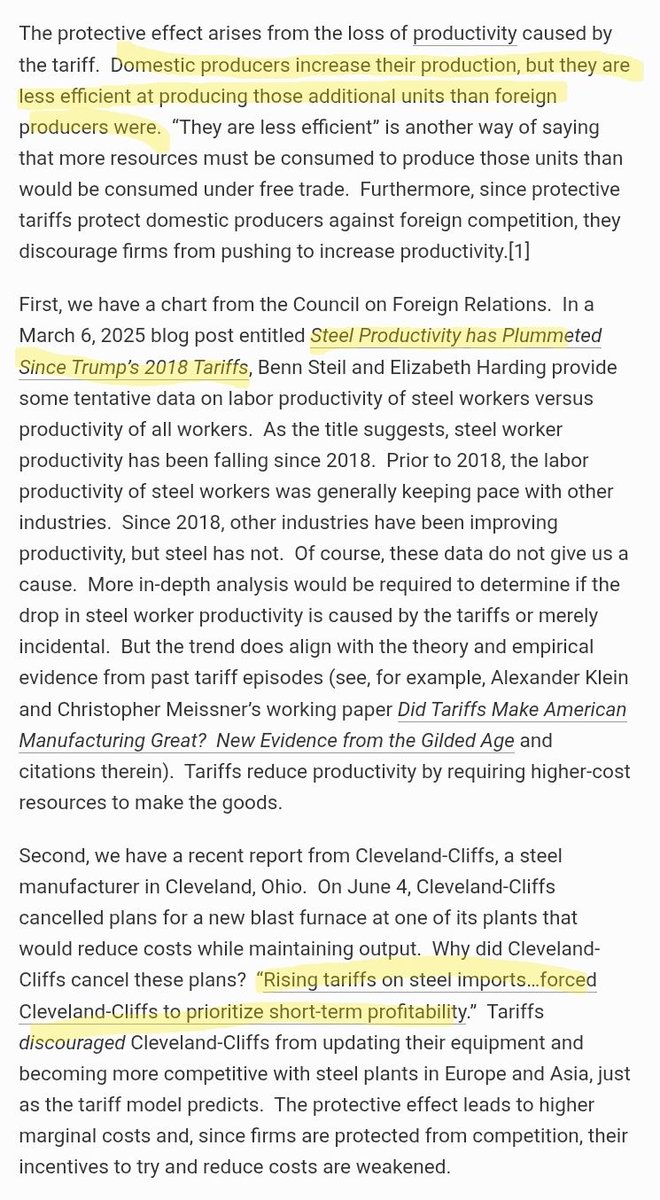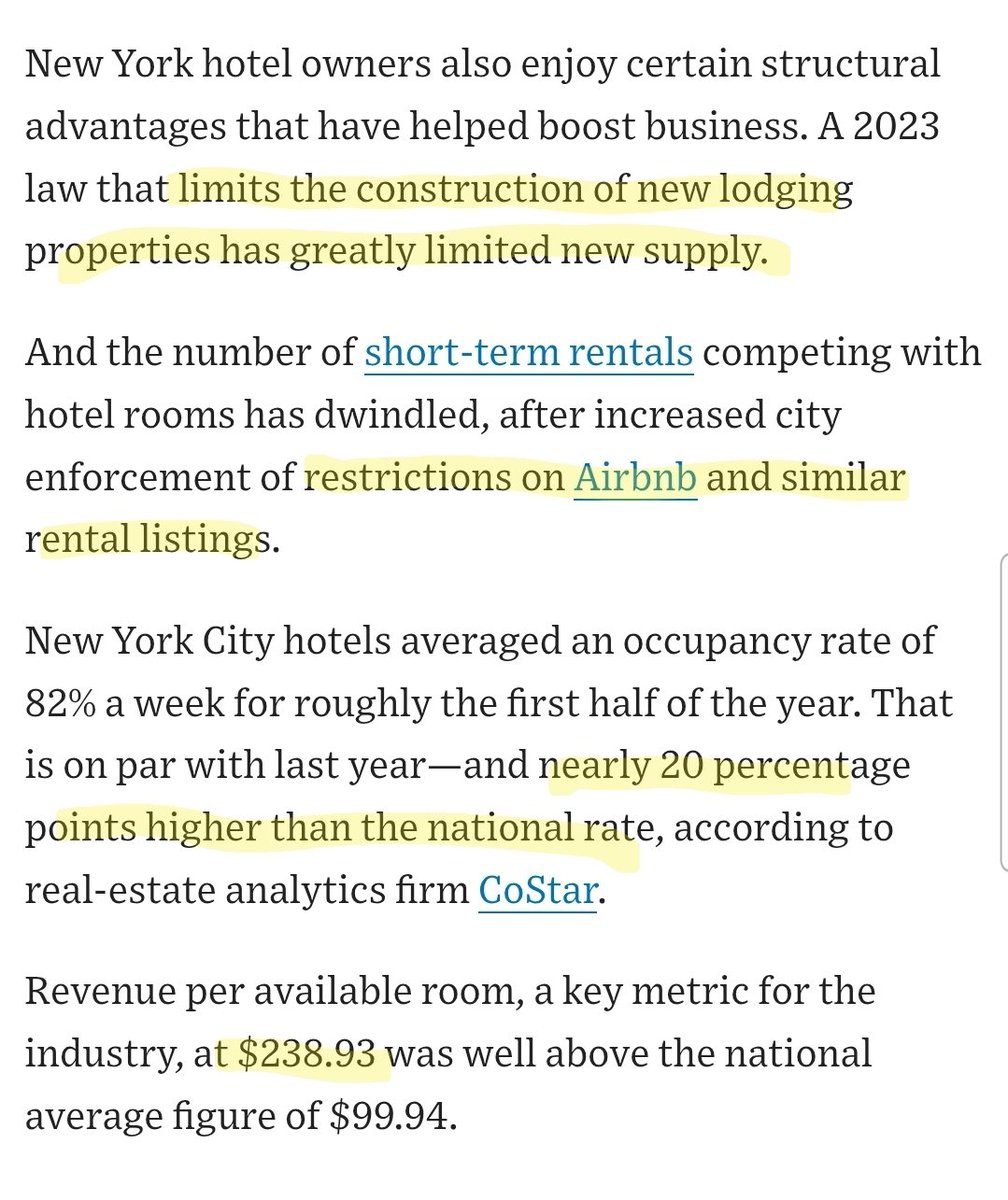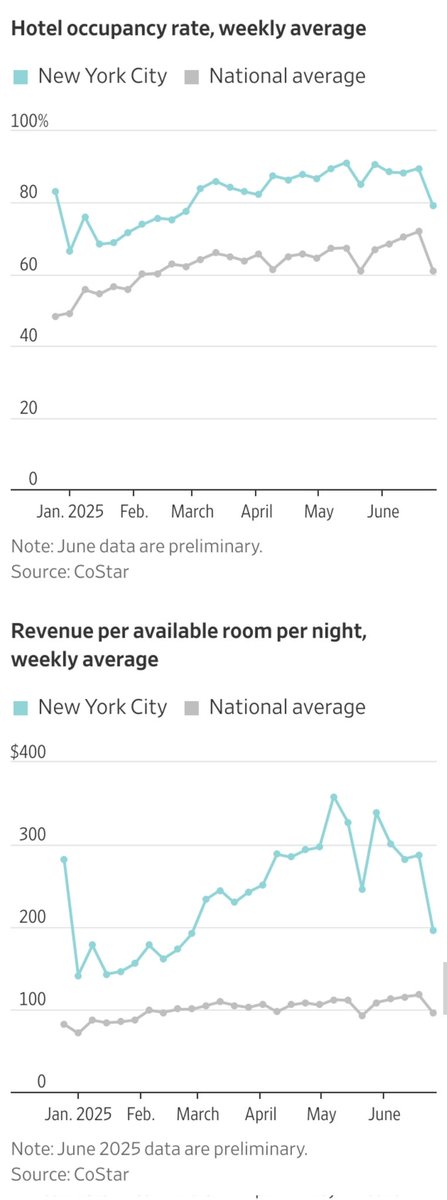
Scott Lincicome
@scottlincicome
@CatoInstitute Vice President (Econ/Trade), @DukeLaw adjunct, @TheDispatch newsletter-er. CH❤️RTS. You didn't read the article, did you? Go @Rangers.
🚨NEW TODAY🚨 The @CatoInstitute docuseries, Faces of Globalization, follows real people here and abroad whose lives depend on the global economy in ways that challenge the current conventional wisdom: cato.org/video-series/f… /1

Swing by Cato this Wednesday to hear my conversation with @RepDelBene on the (rather obvious/urgent) need for Congress to reform US tariff laws & claw back some of its constitutional authority over trade. (Or watch online. In either case, register at the link below.)
Congress handed its tariff powers to the executive branch. Now, one person can impose sweeping trade restrictions without oversight. Join @RepDelBene and @scottlincicome for a fireside chat on unchecked executive tariff powers and how Congress can reclaim its constitutional…
A tale as old as time. Sad.
Sorry, I’m pro tariff now. I’ve been a hater, but I just didn’t realize Trump was just trying to give ordinary Americans like me a fair shot to monetize our ornamental landscaping. Now it all makes so much more sense
Our analysis finds that the Trump tariffs threaten to offset much of the benefits of the new "Big Beautiful Bill" tax cuts, while falling short of paying for them.
Food supplies have increased dramatically in Ethiopia, Niger, Mali, Bangladesh, and India—countries historically synonymous with hunger. These gains reflect sustained growth in agricultural productivity and trade.
I really want to meet the 5% who think Trump isn't doing enough on tariffs lol
New CBS poll @scottlincicome
An entire WSJ article about why US soda-makers don't use cane sugar (spoiler: we don't "make enough" lol) and not a single mention of highly-restrictive US sugar quotas that keep prices here WAY above global levels? Cmon, man. wsj.com/business/the-p…
"The Protective Effect of a Tariff" econlib.org/the-protective…

"In other words, the CEA calculations are ignoring the presence of domestic alternatives. For some products (think coffee), there is virtually no domestic production. But for others, there are." econbrowser.com/archives/2025/…
New @nberpubs: "Economic Crisis and Disillusionment from Socialism: Evidence From a Quasi-Natural Experiment" nber.org/papers/w34049#…

I’d feel really bad that I spent years full time obsessing over life extension.
If you knew the end of humanity was in five years, what would you do between now and then?
Advancing competition in the economy is a really important goal, and one that the people most eager to talk about antitrust policy have a kind of oddly fitful relationship with.
NYC's lodging restrictions are paying off - for upscale hotel owners. wsj.com/real-estate/co…
NYC's lodging restrictions are paying off - for upscale hotel owners. wsj.com/real-estate/co…



Canada is the top export market for American merchandise so far this year
.@howardlutnick: "Canada is not open to us. They need to open their market. Unless they're willing to open their market, they're going to pay a tariff ... I think the President is going to open between $300-$400 billion of opportunity for Americans."
.@johanknorberg warns America, “Don’t get cocky.” Look at his country, Sweden - politicians passed socialist policies. “It almost killed the Swedish economy.”
Milly has fallen asleep on my feet, and I don't have the heart to wake her. (Yet. Eventually I'll need wine... and food, I guess)

The article is deeply misleading. In the absence of sugar tariffs, U.S. sugar production would decline significantly, and domestic sugar prices—currently more than double world market levels—would fall accordingly. This is a textbook case of protectionism: concentrated gains for…
An entire WSJ article about why US soda-makers don't use cane sugar (spoiler: we don't "make enough" lol) and not a single mention of highly-restrictive US sugar quotas that keep prices here WAY above global levels? Cmon, man. wsj.com/business/the-p…
Neat article, but, as an already marginalized GenXer, the burgeoning Boomer-Zoomer Alliance troubles me. bloomberg.com/news/features/…?
